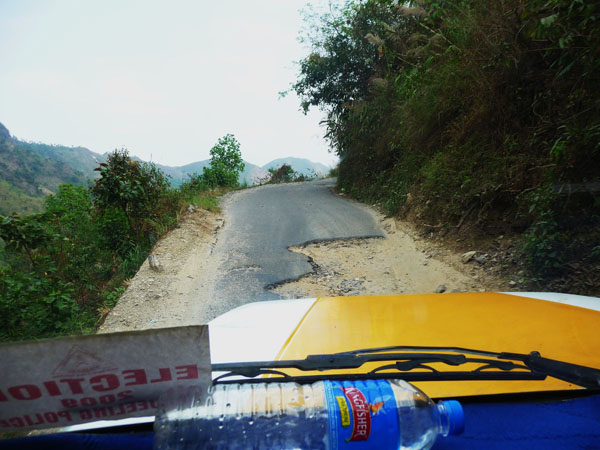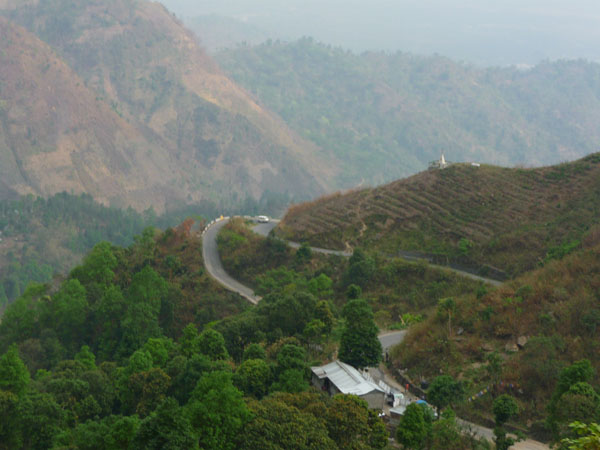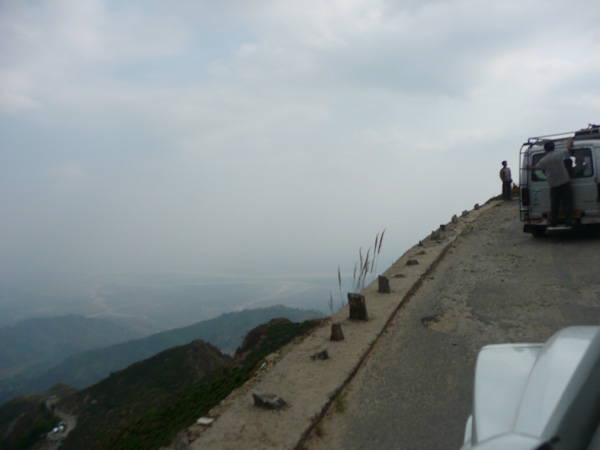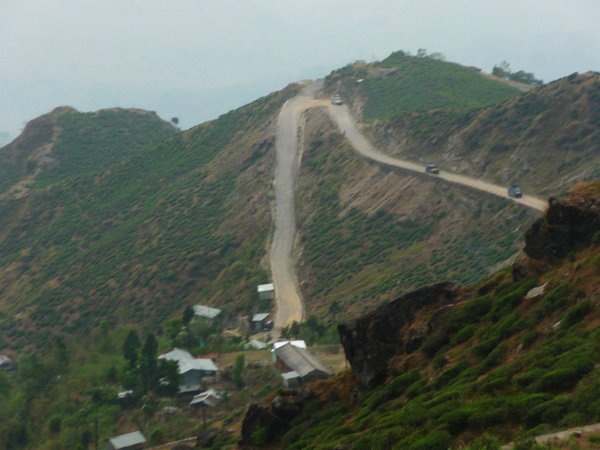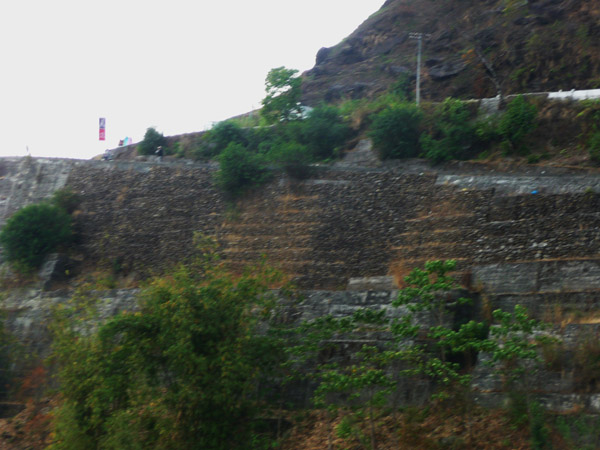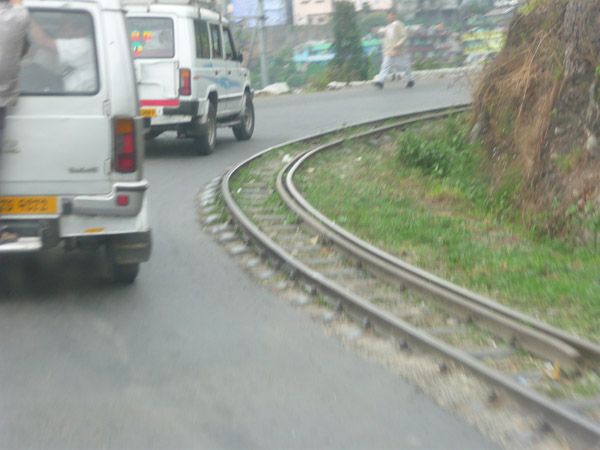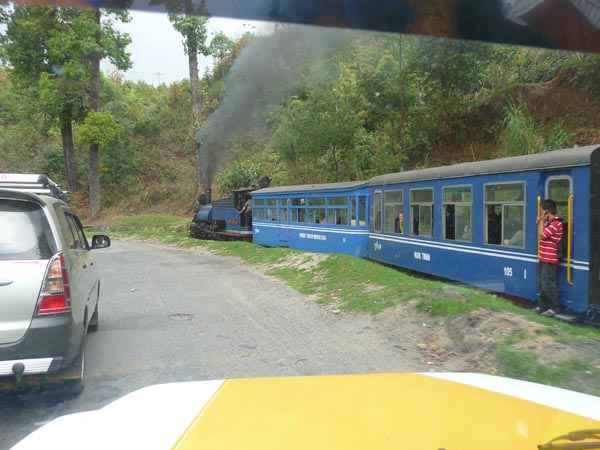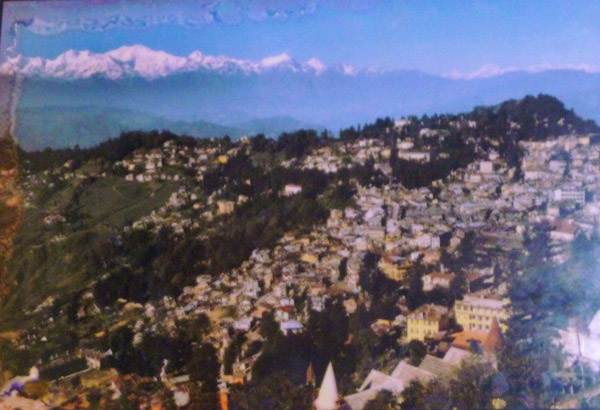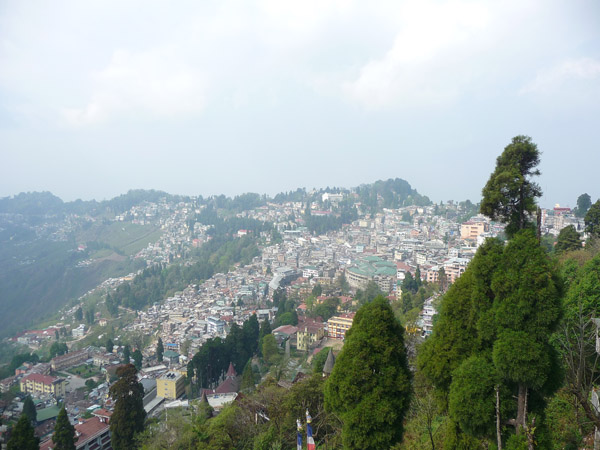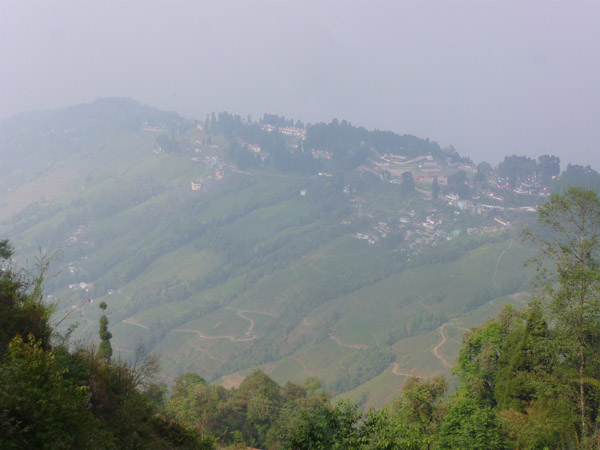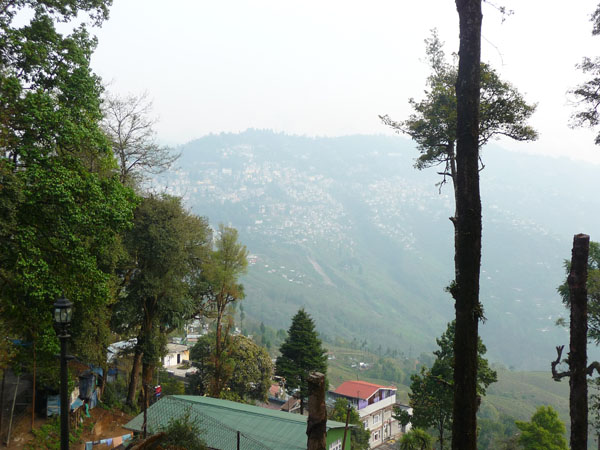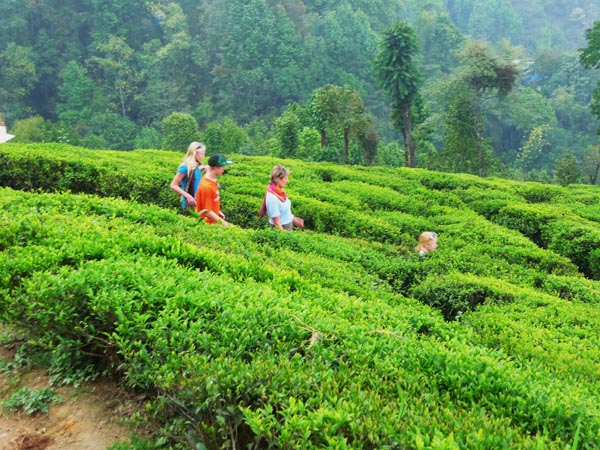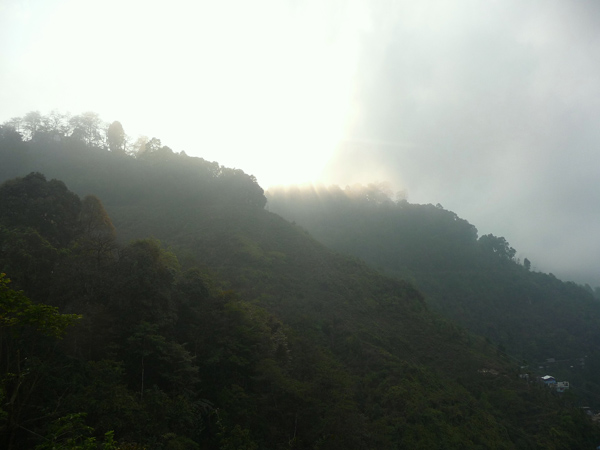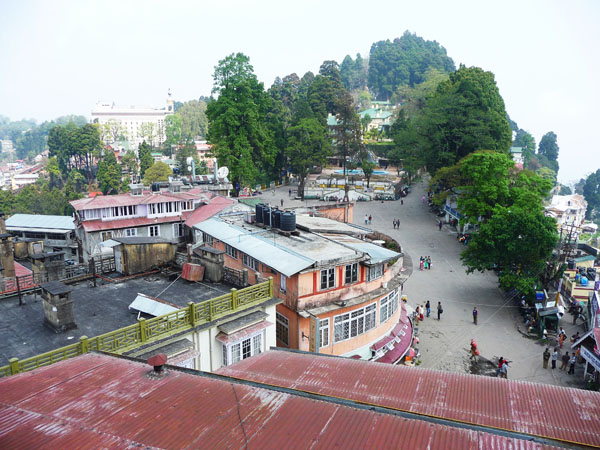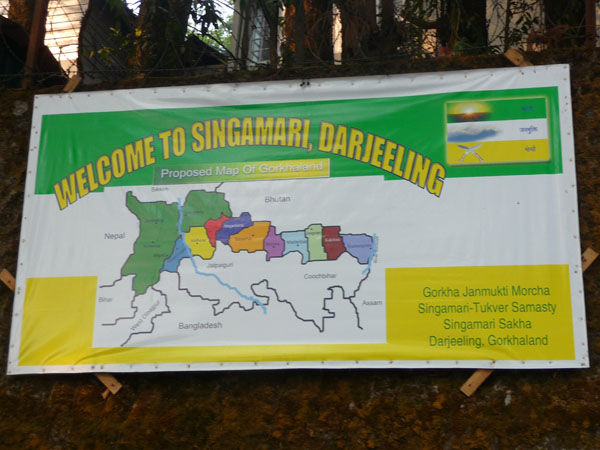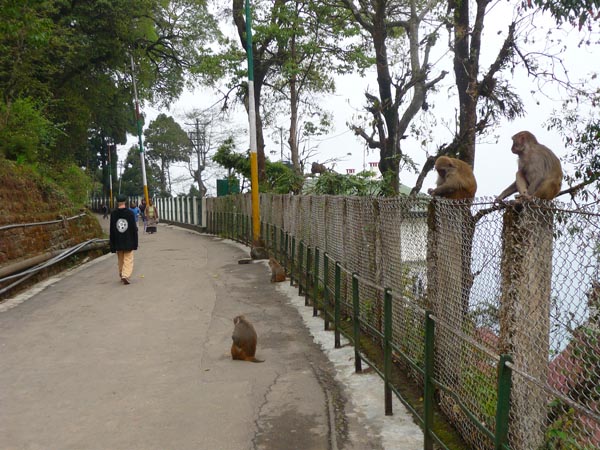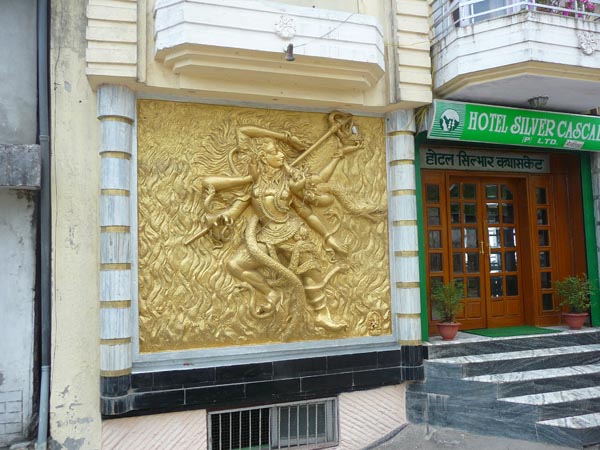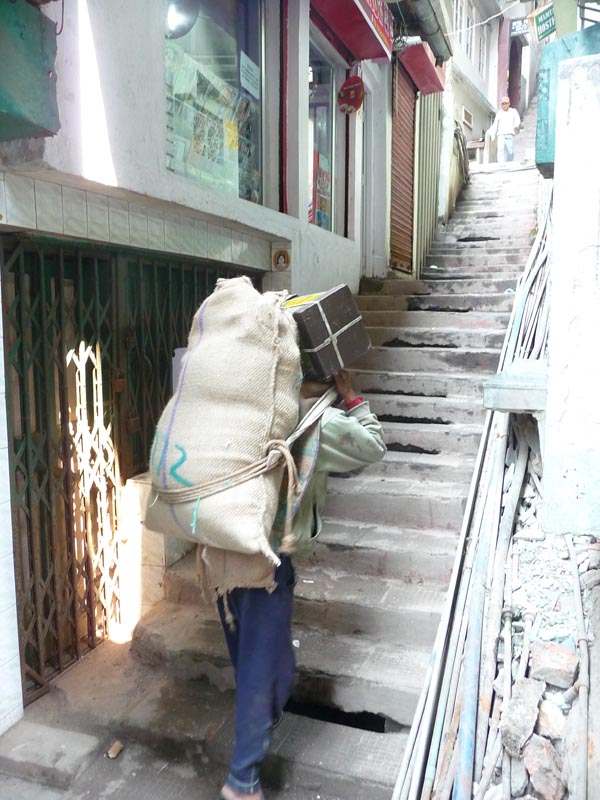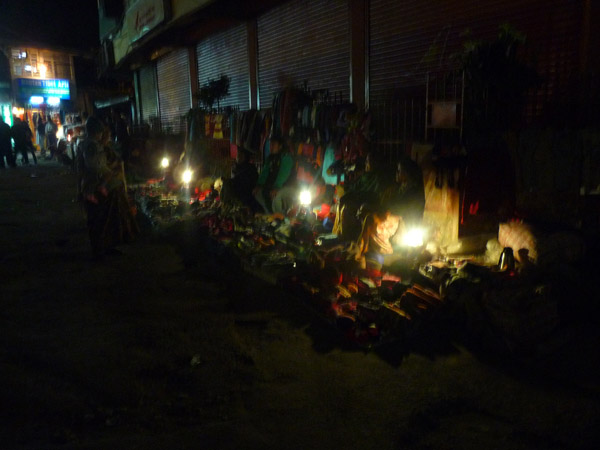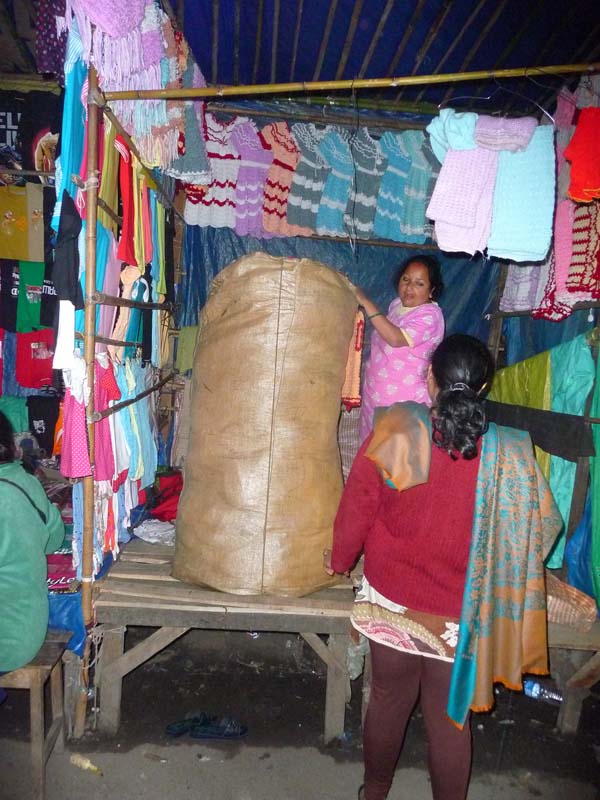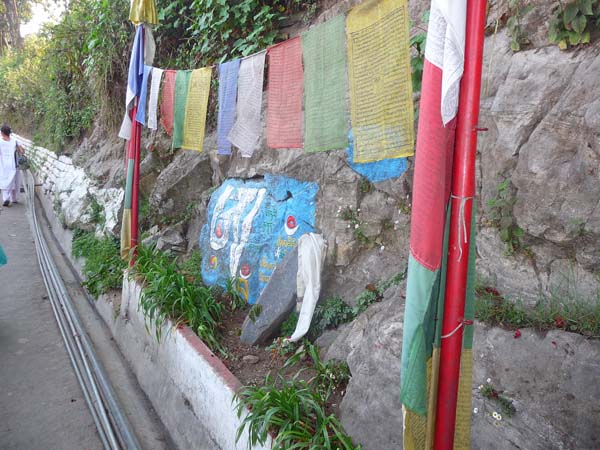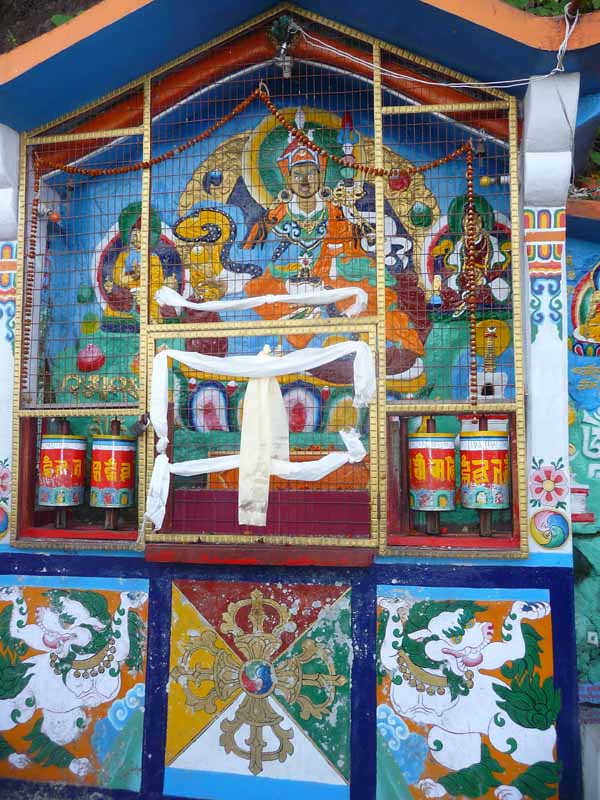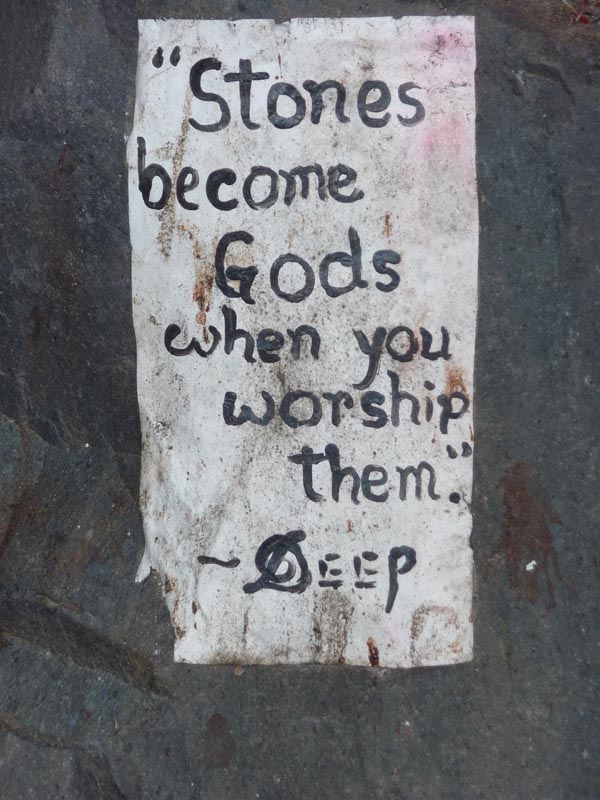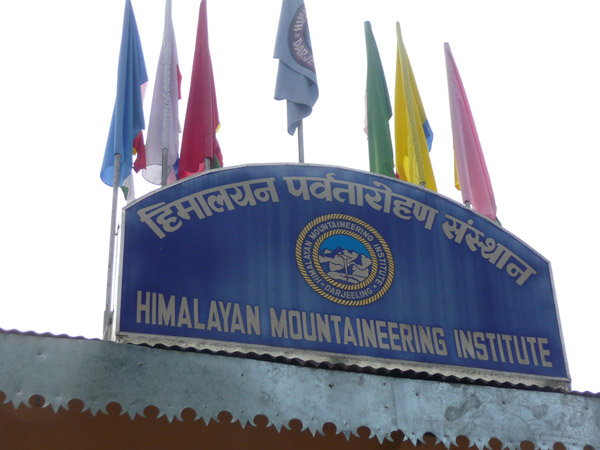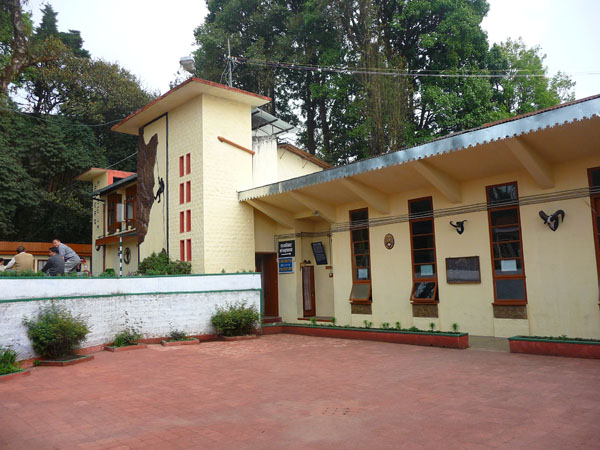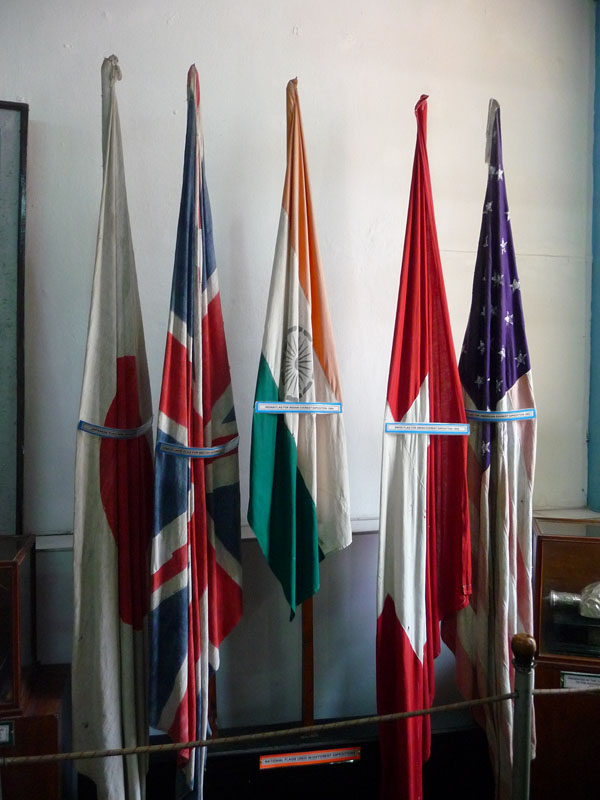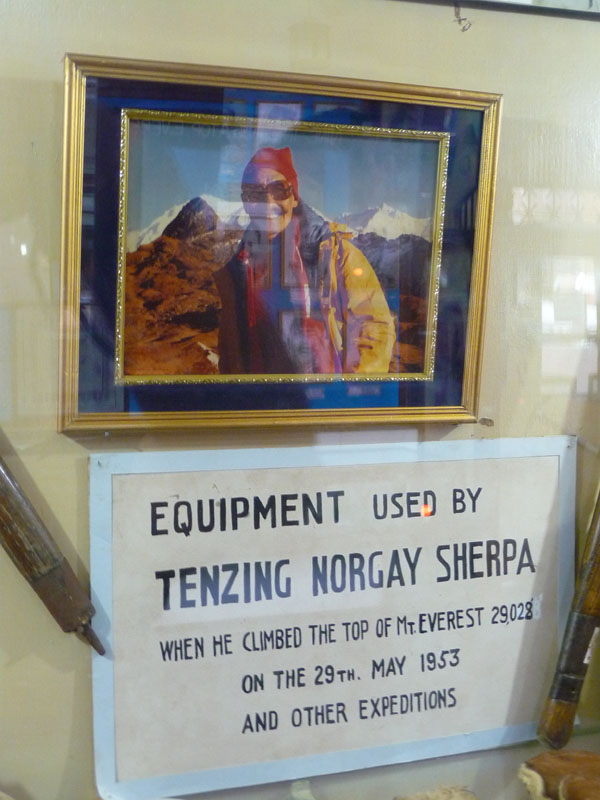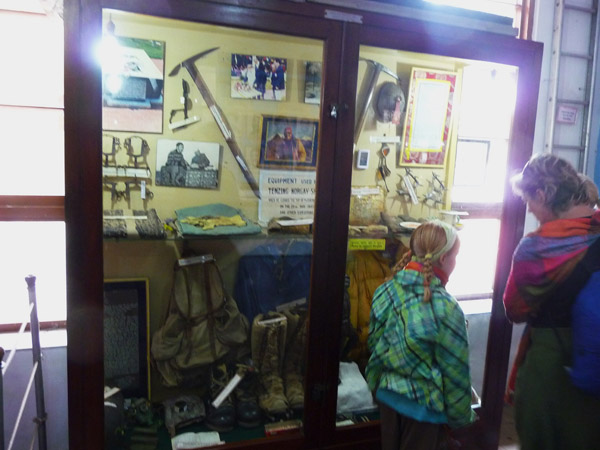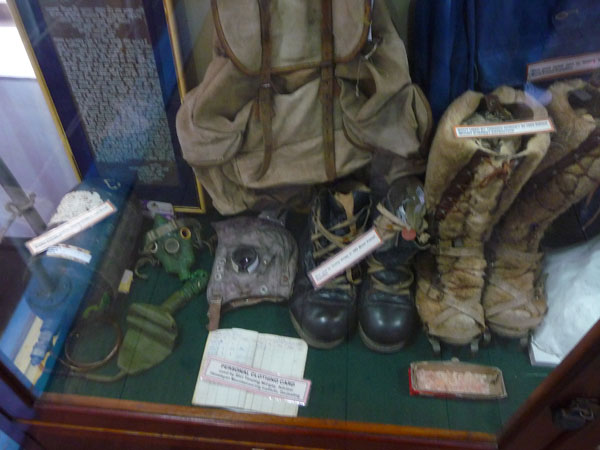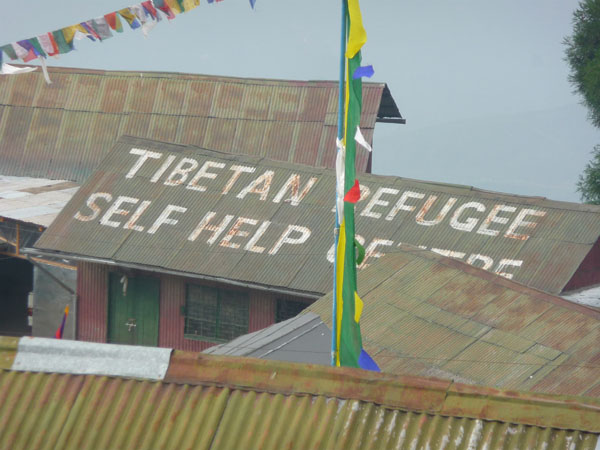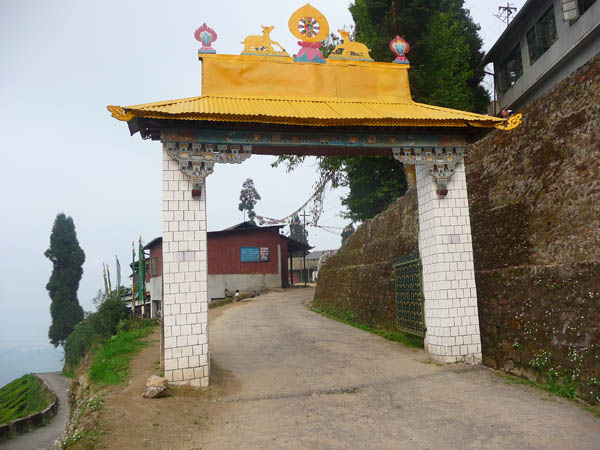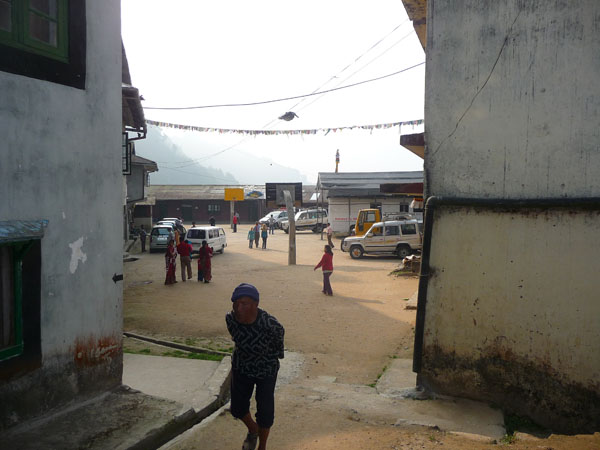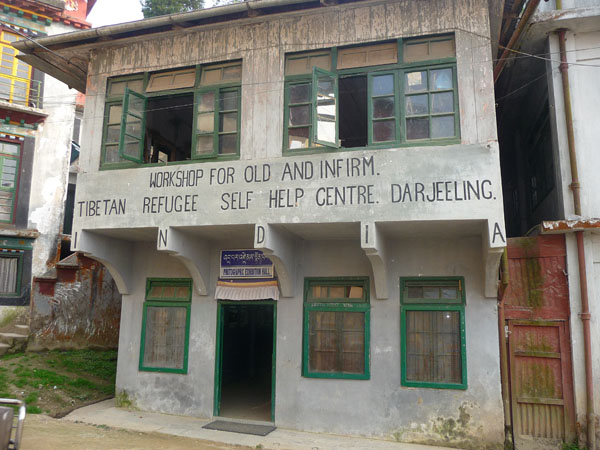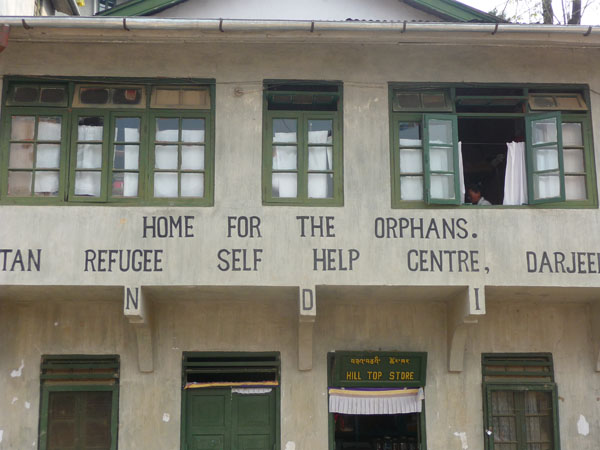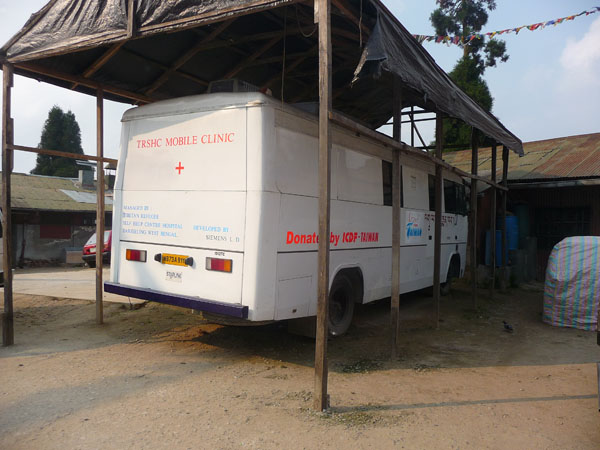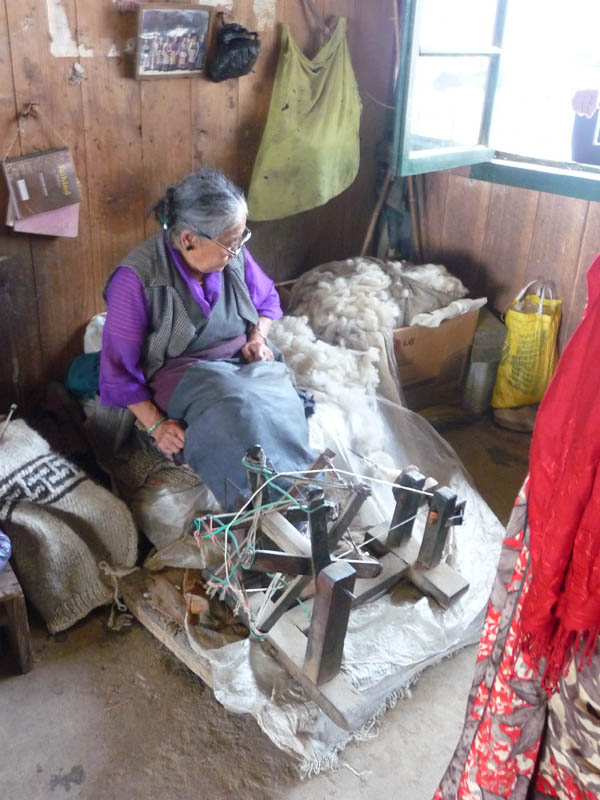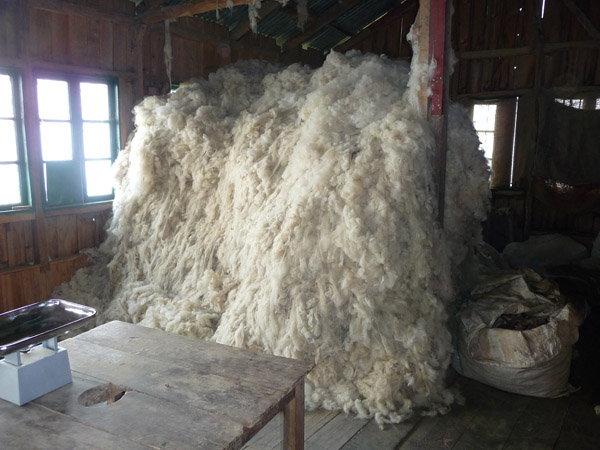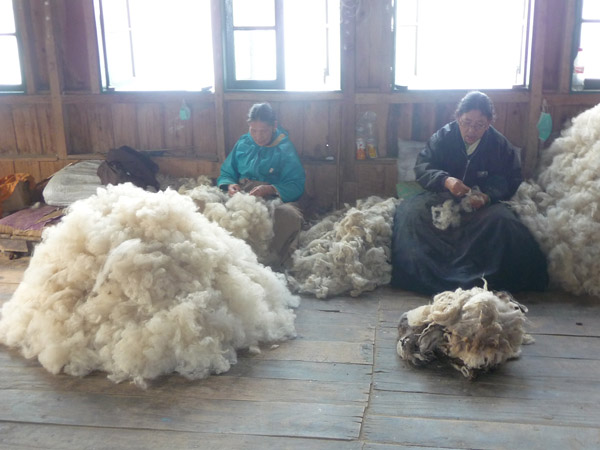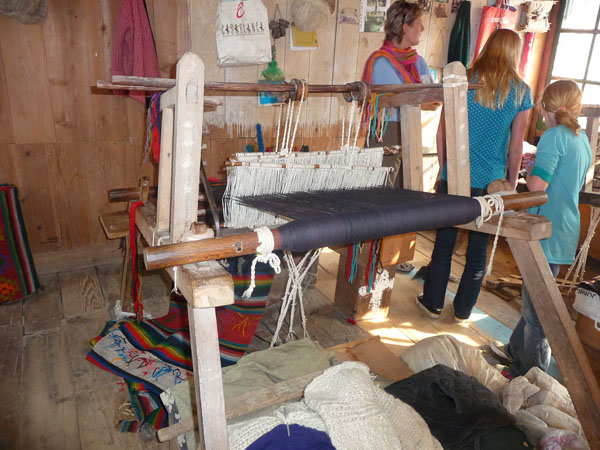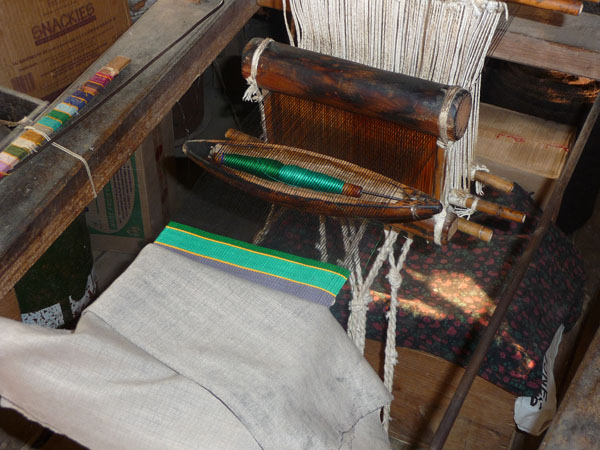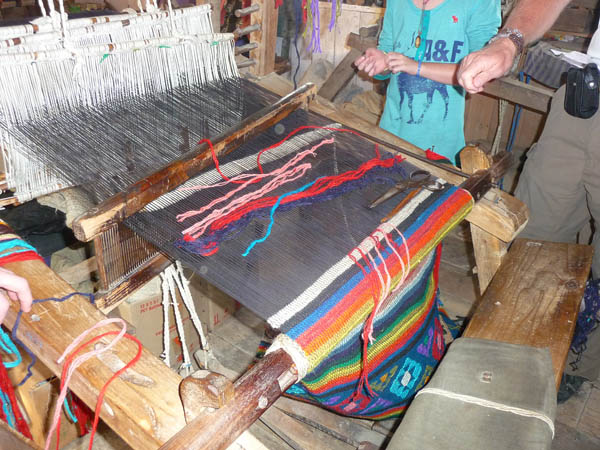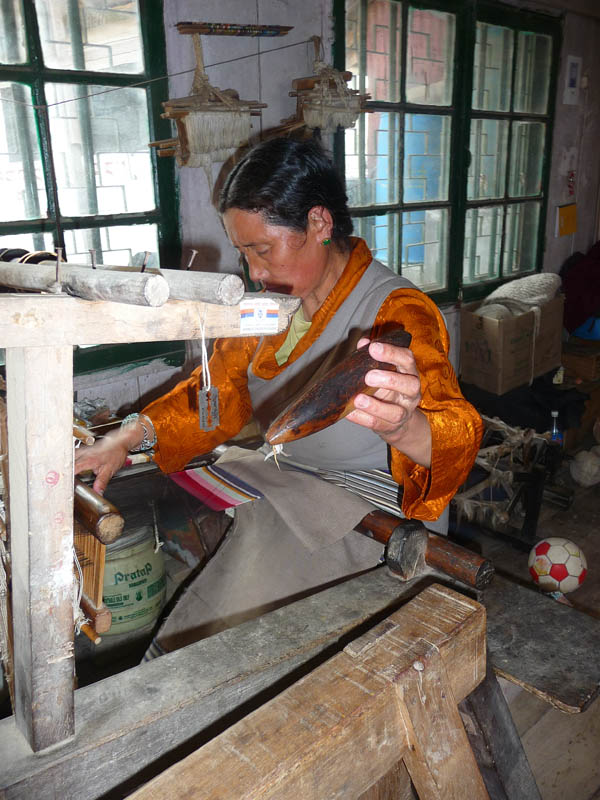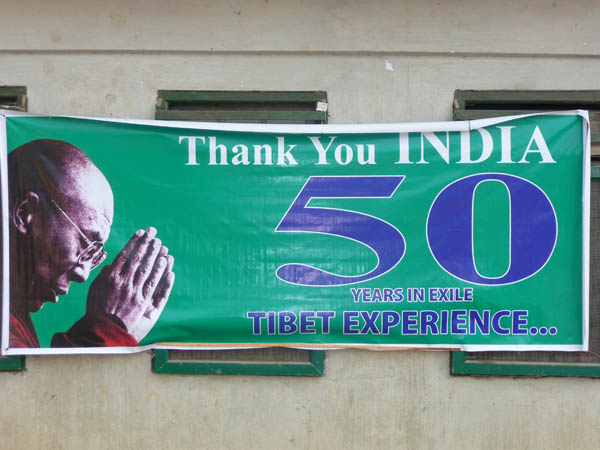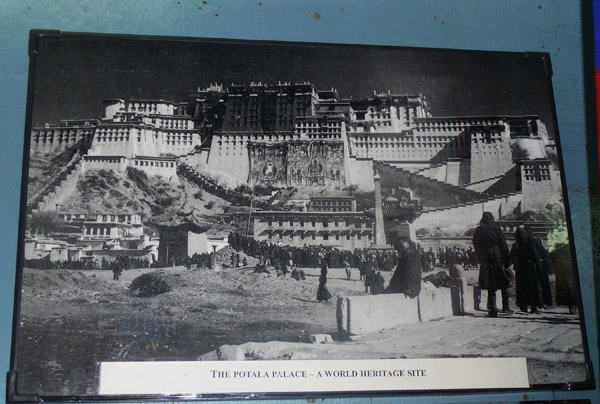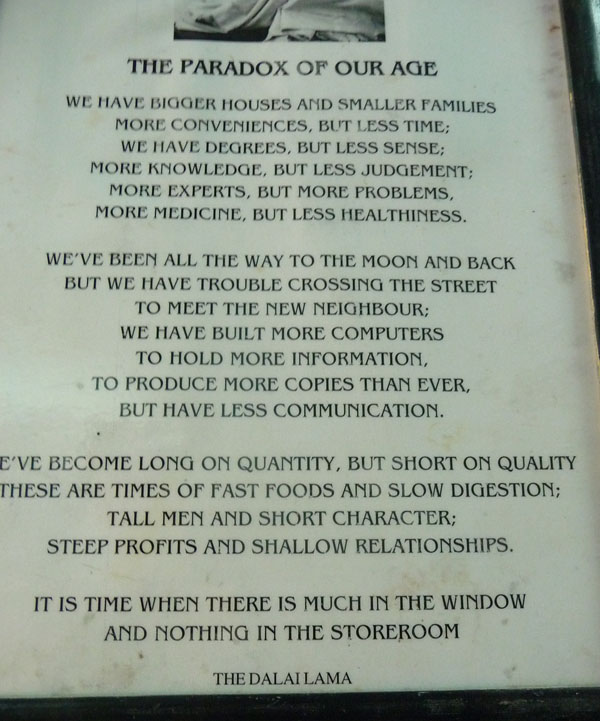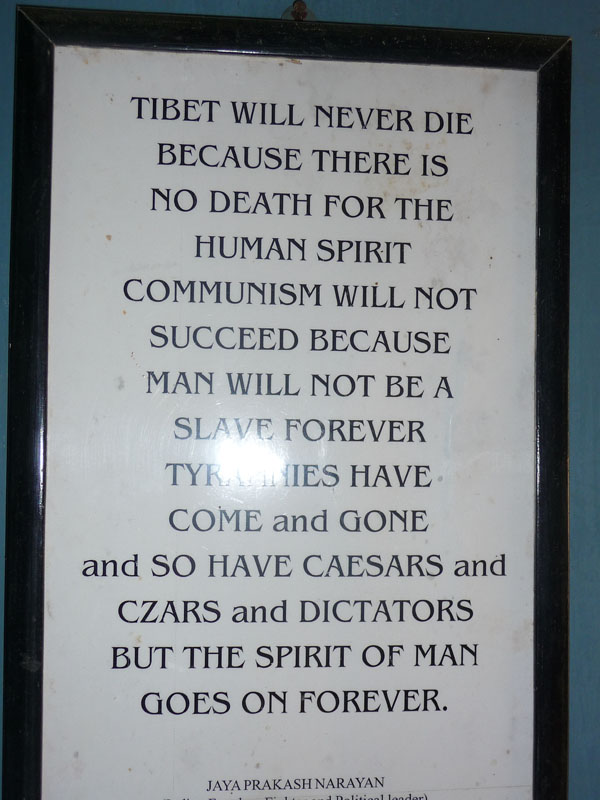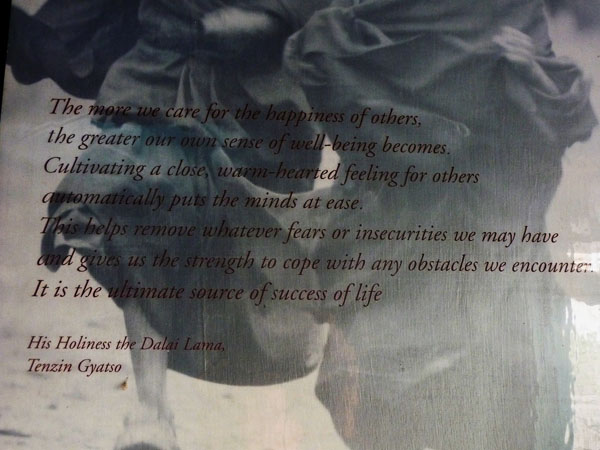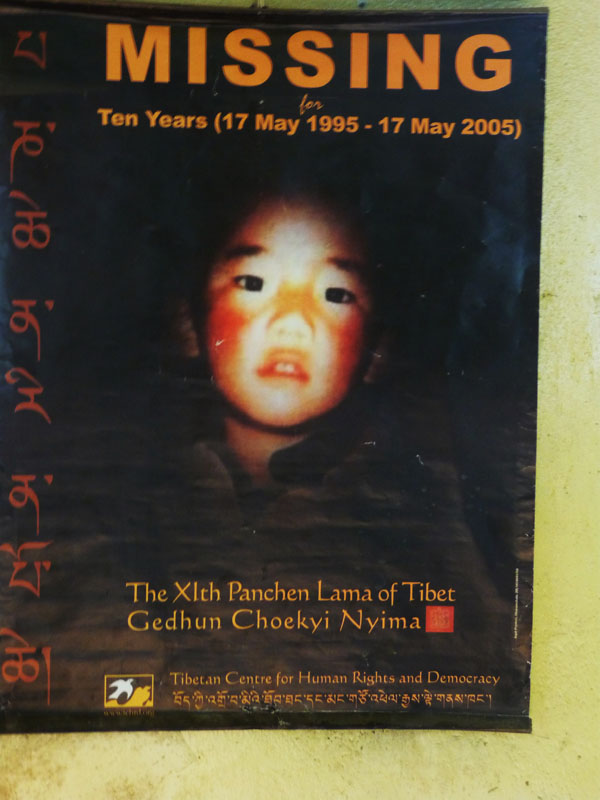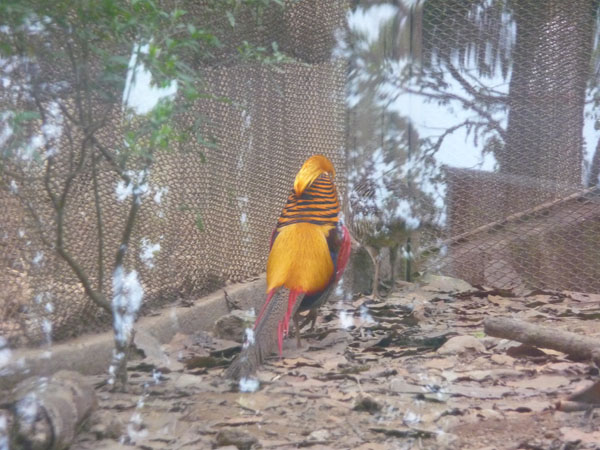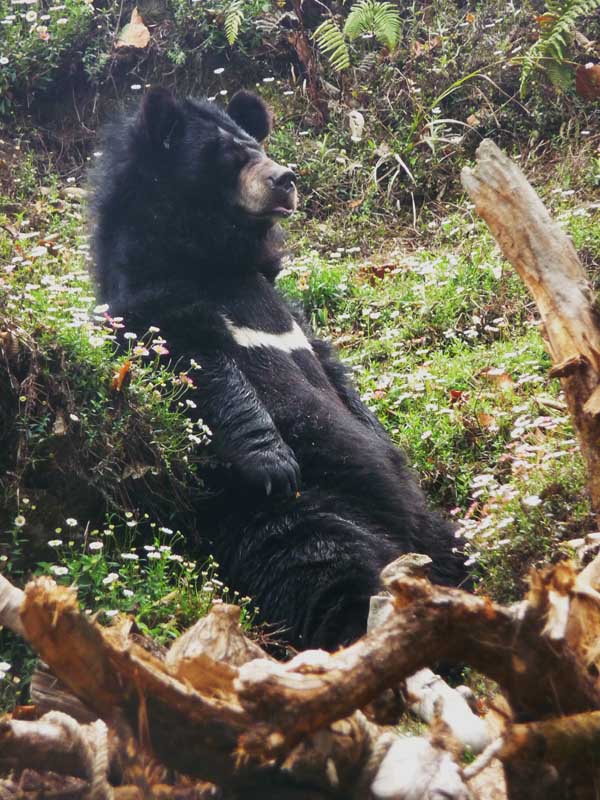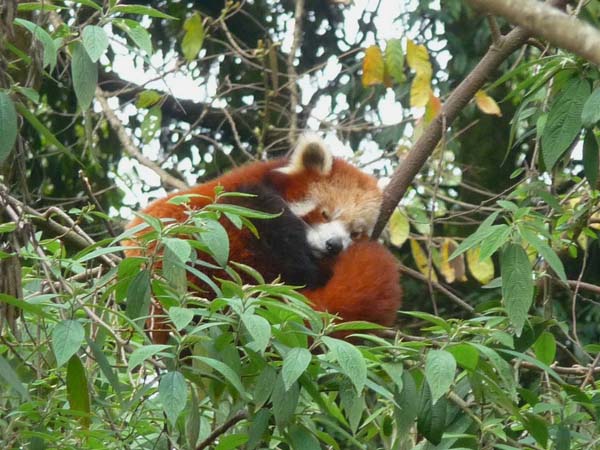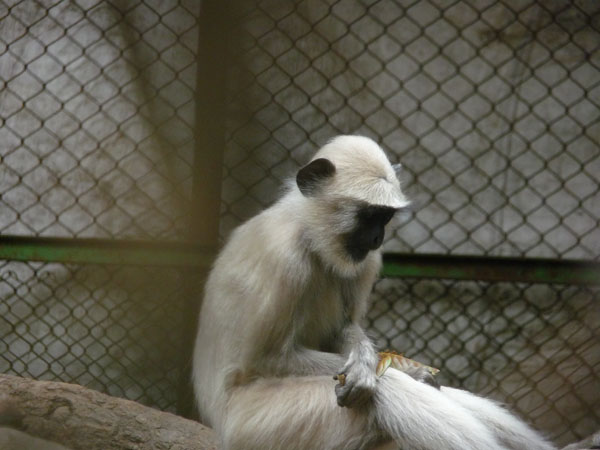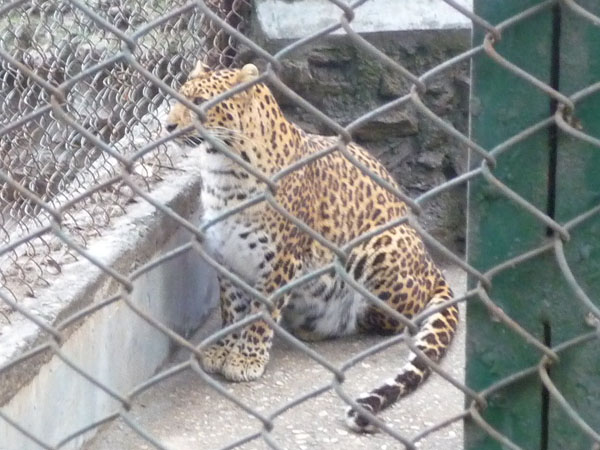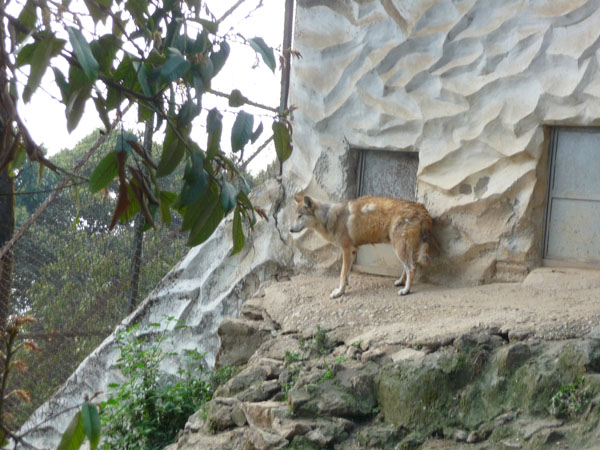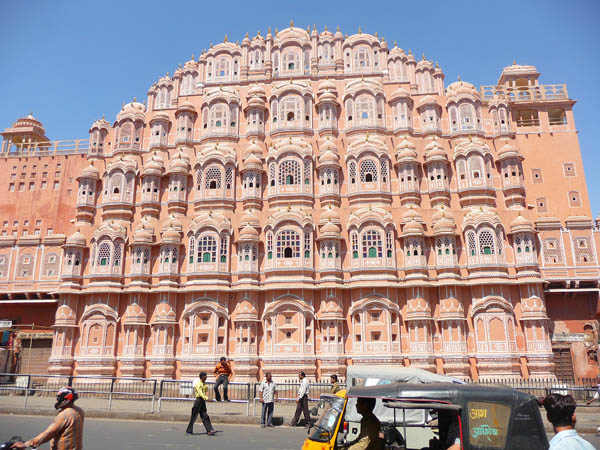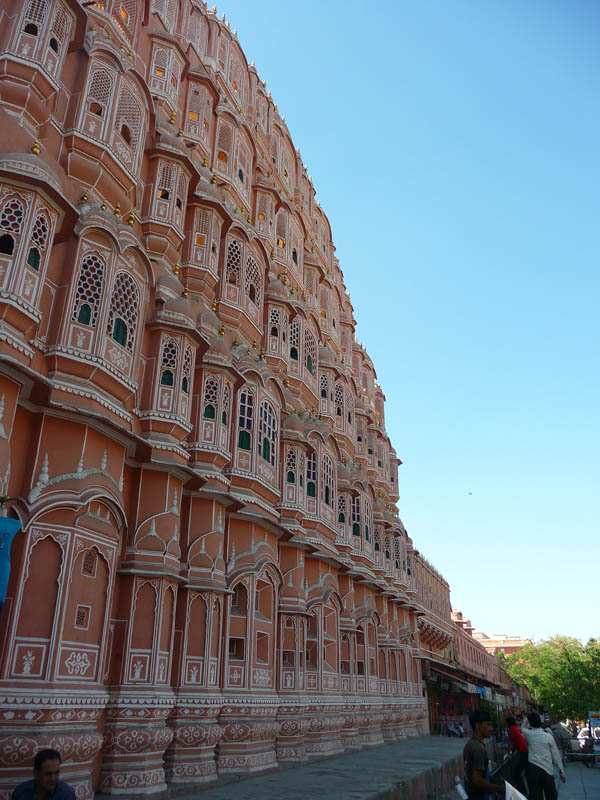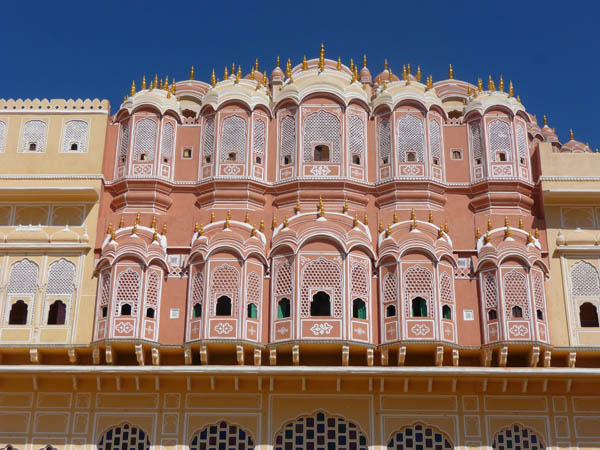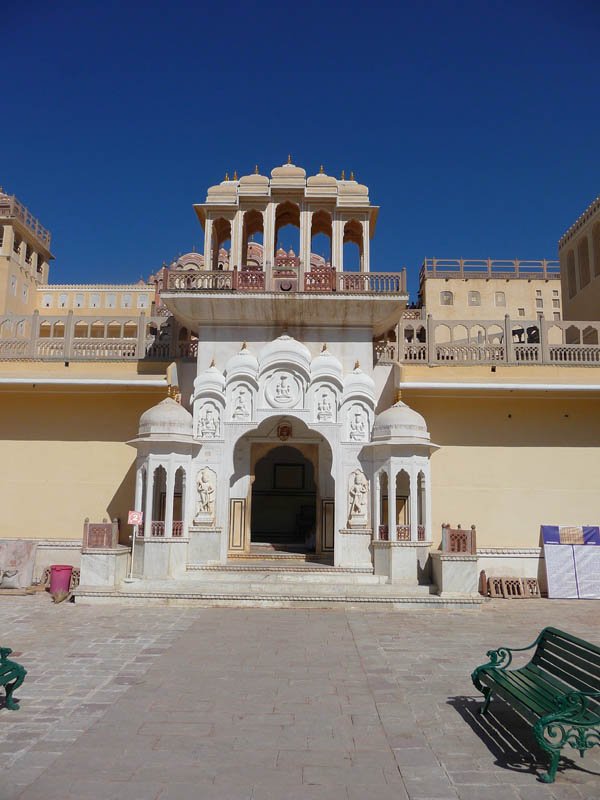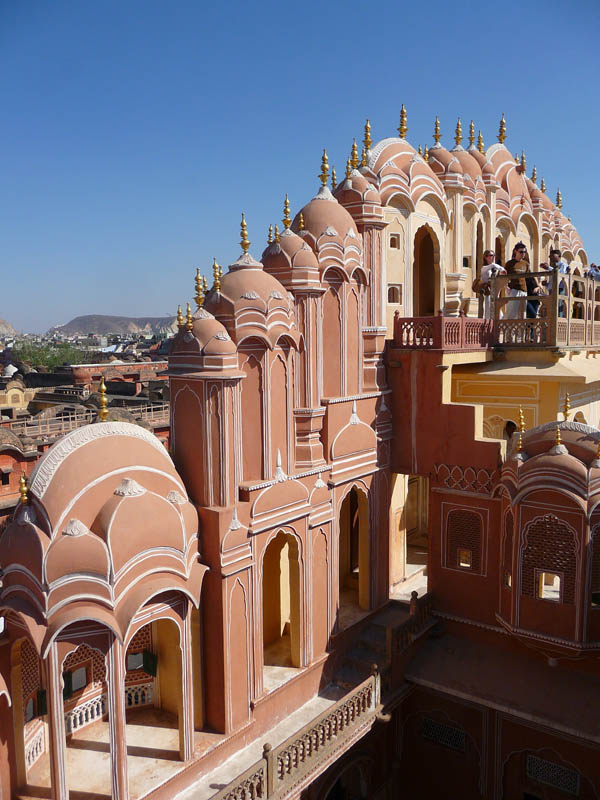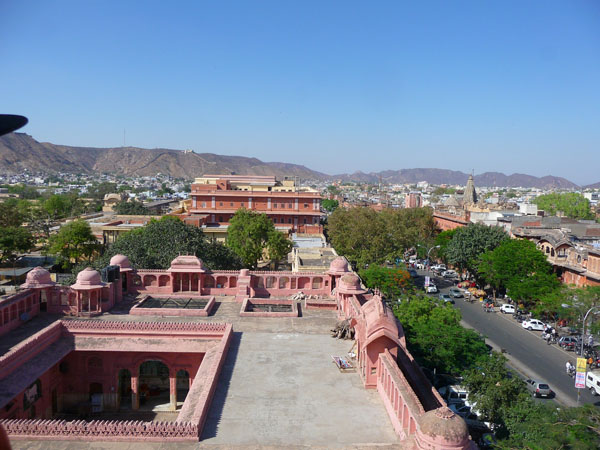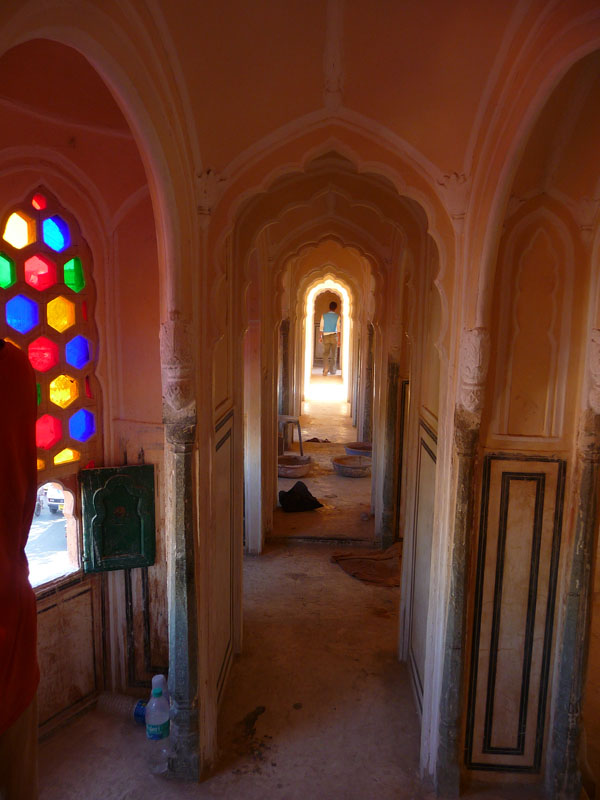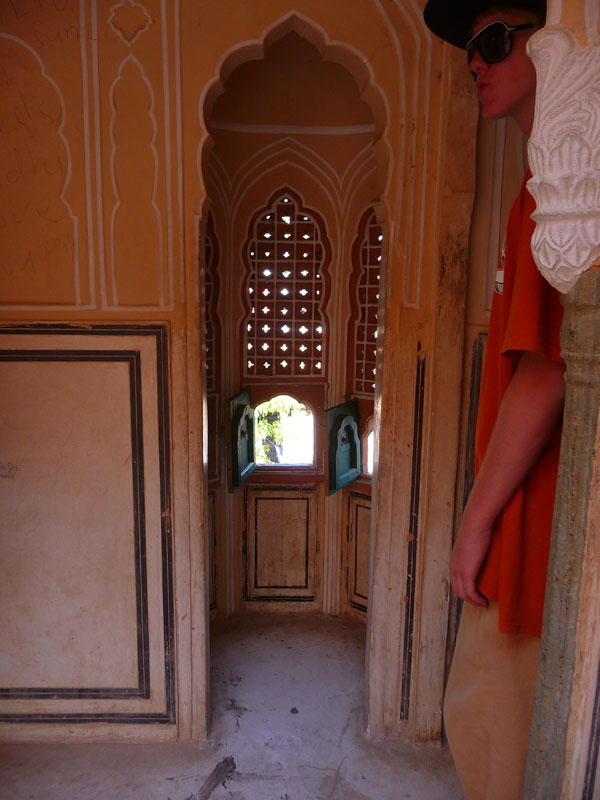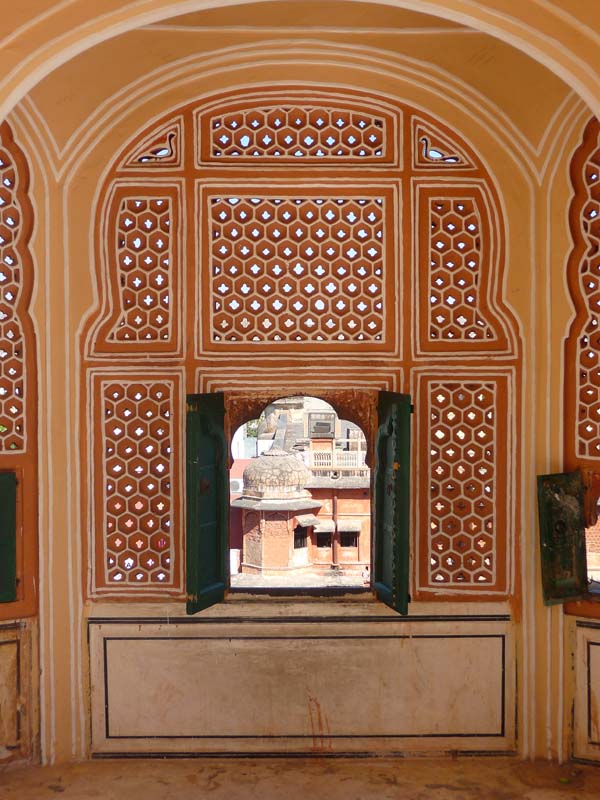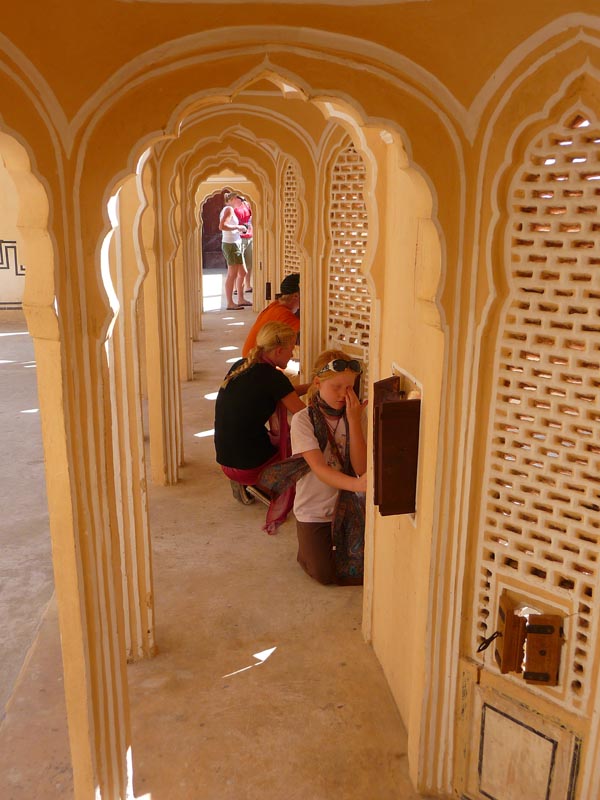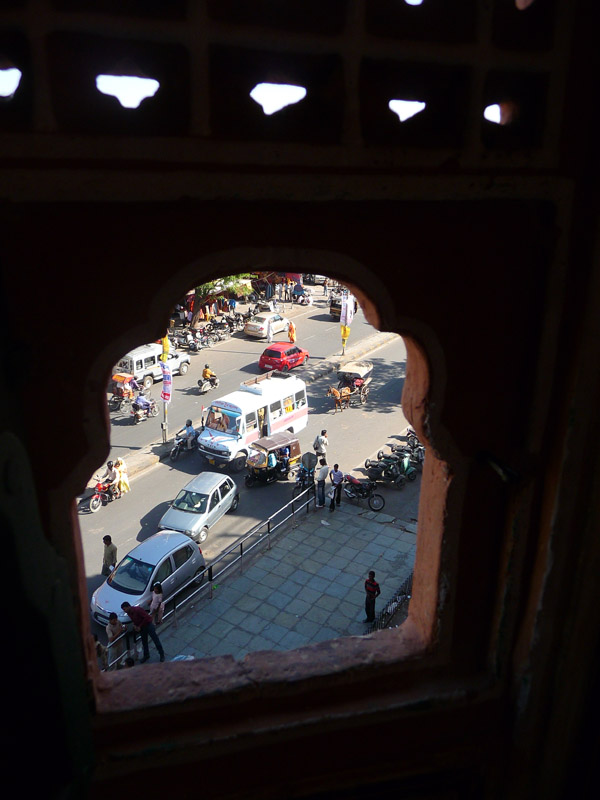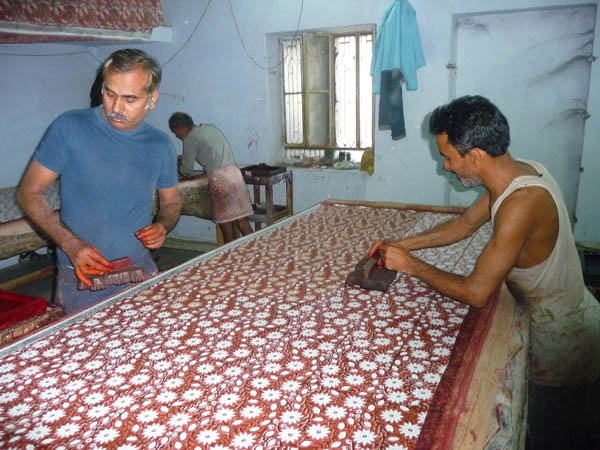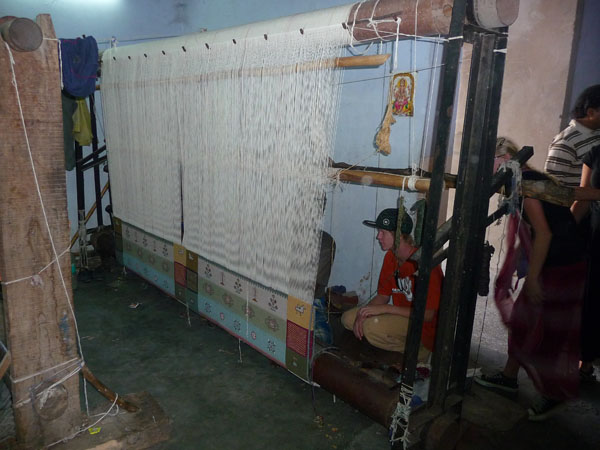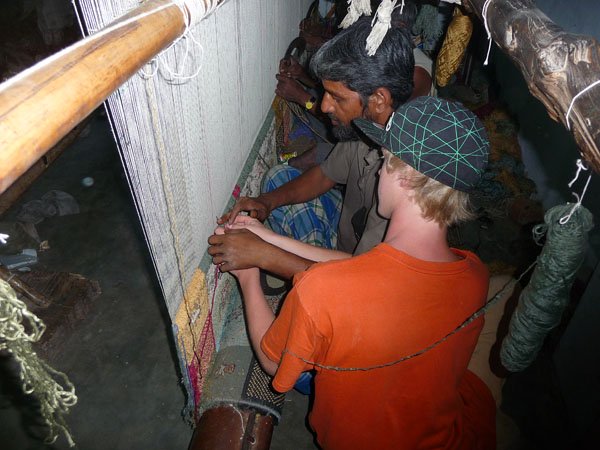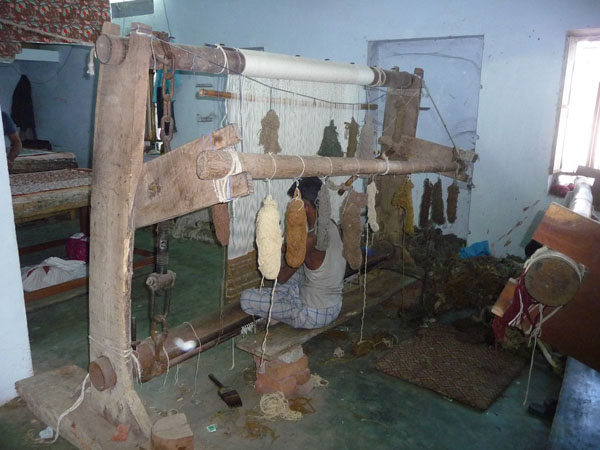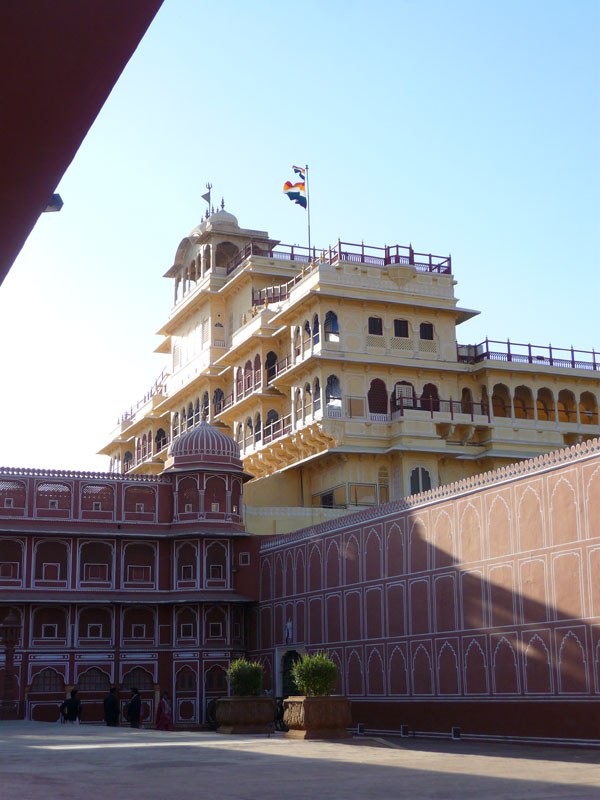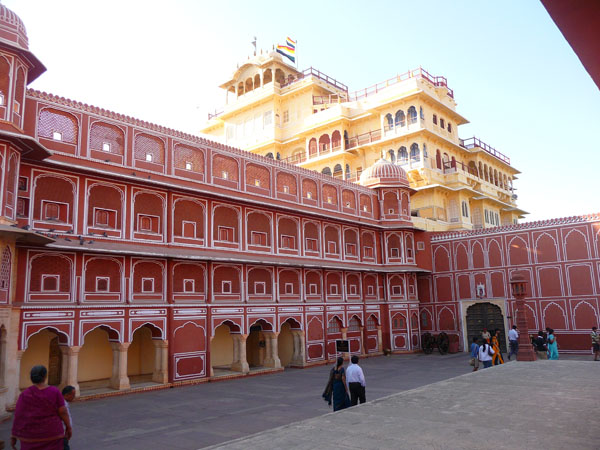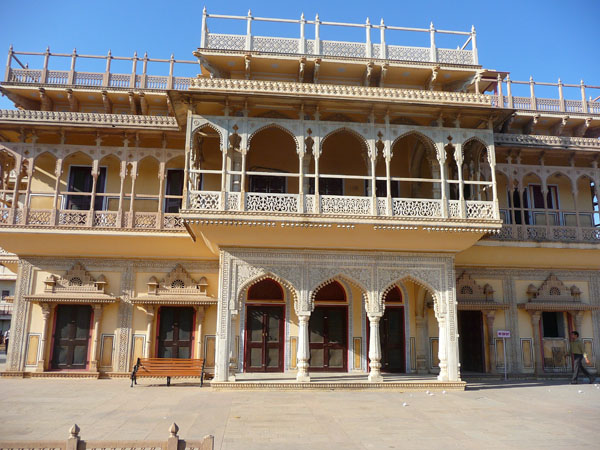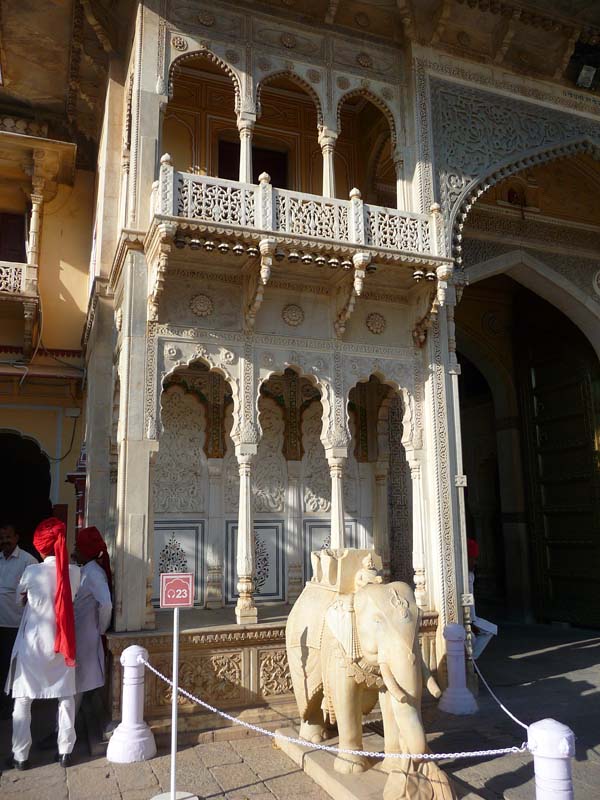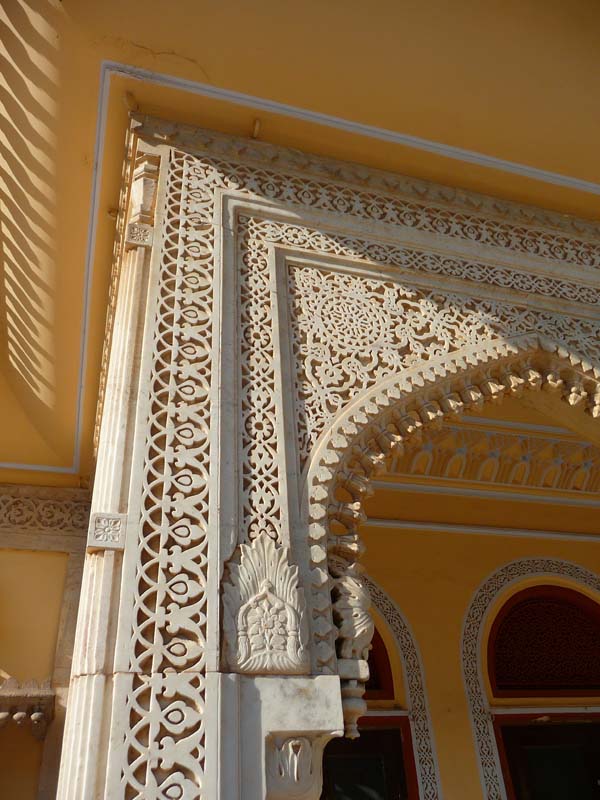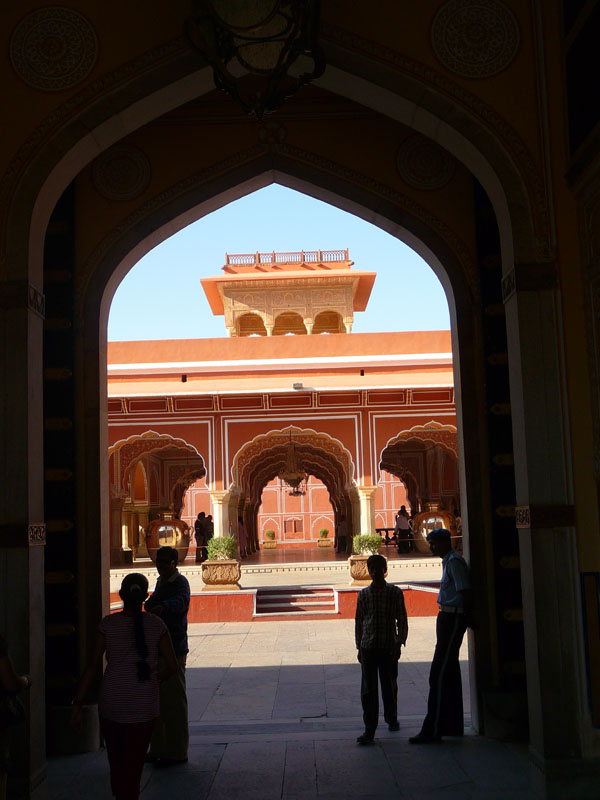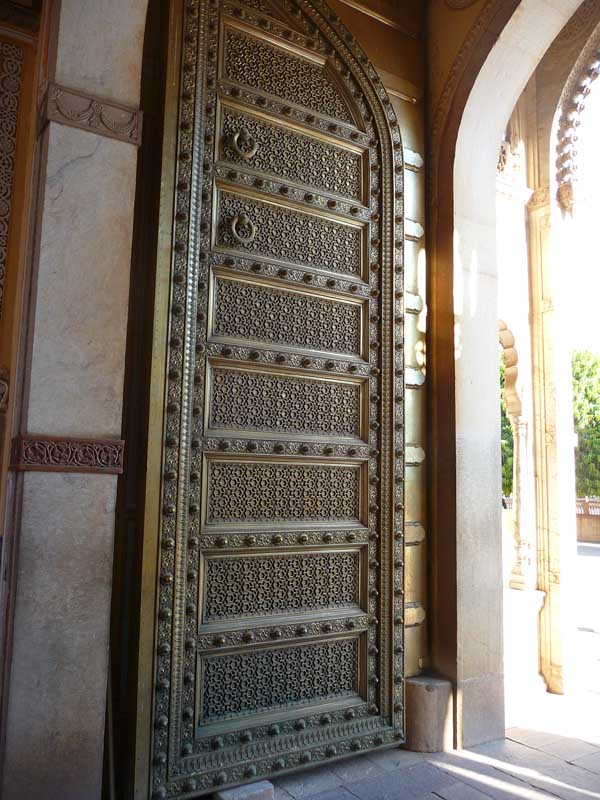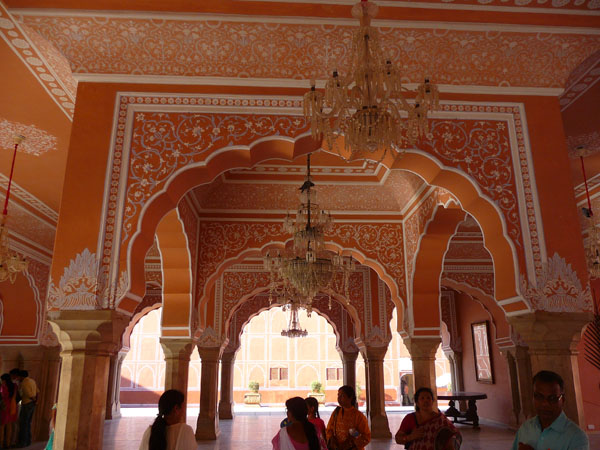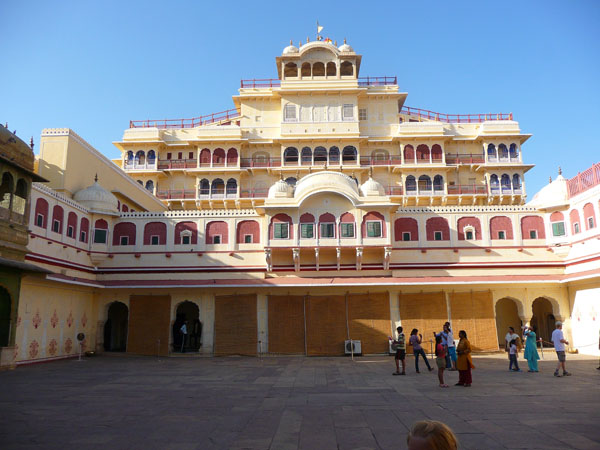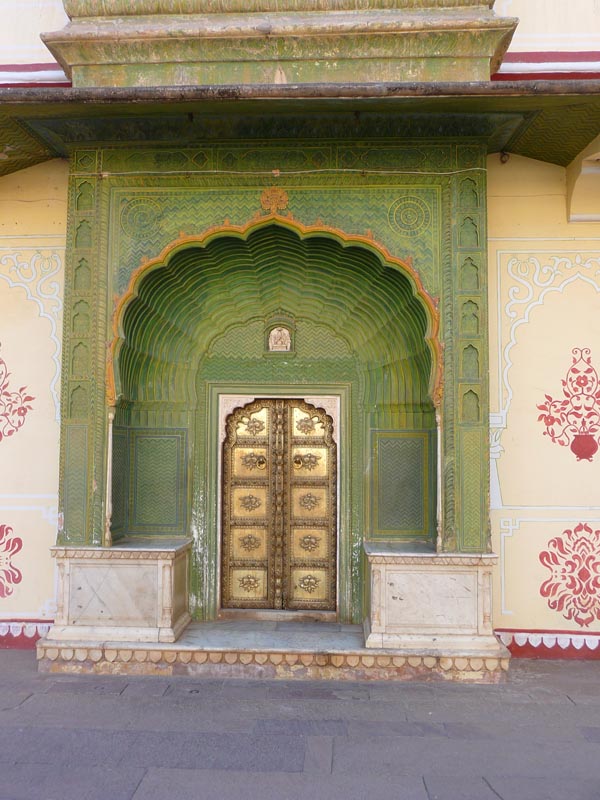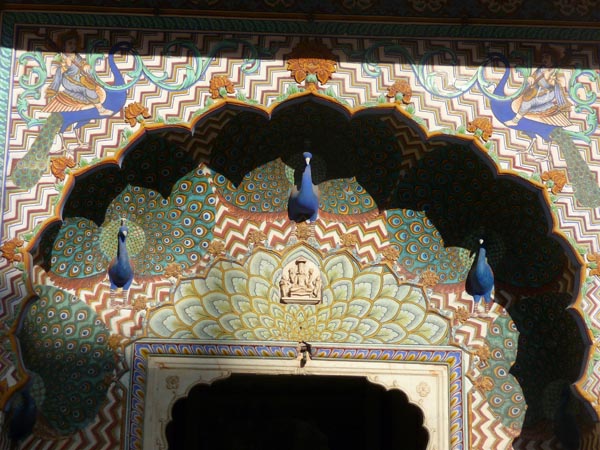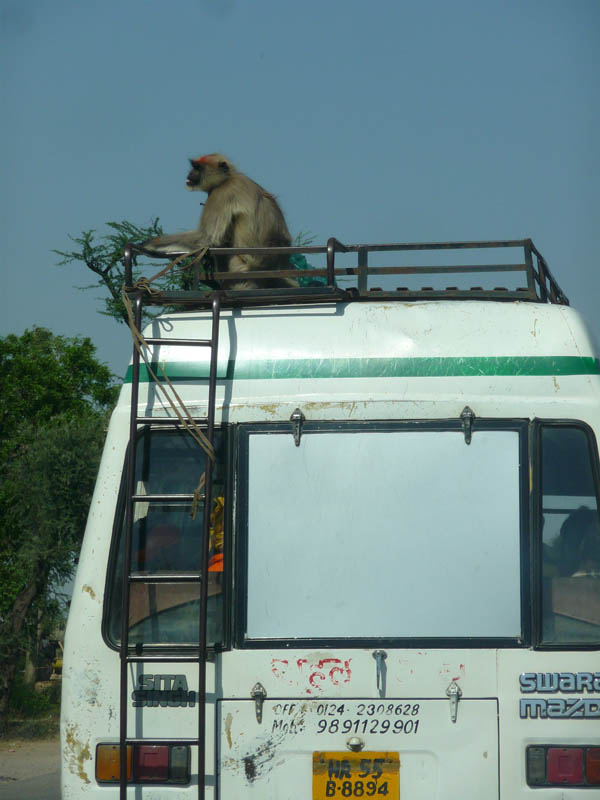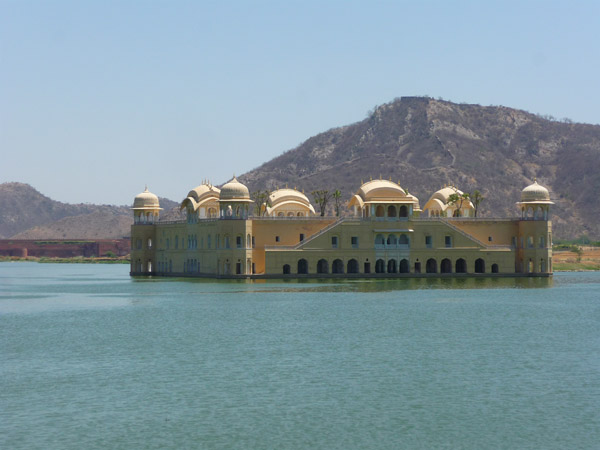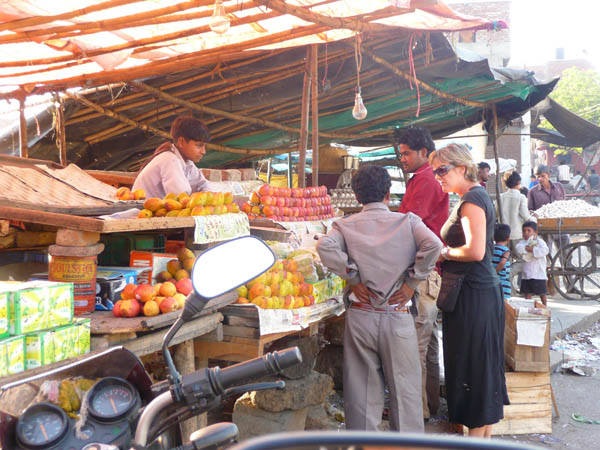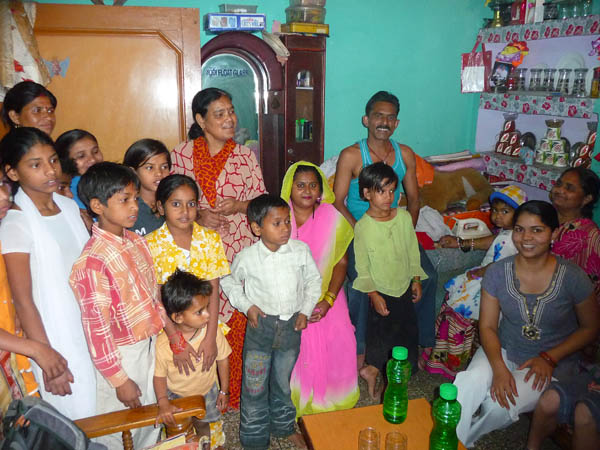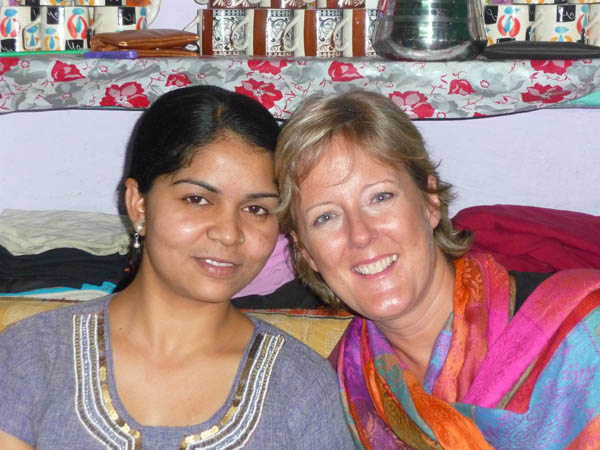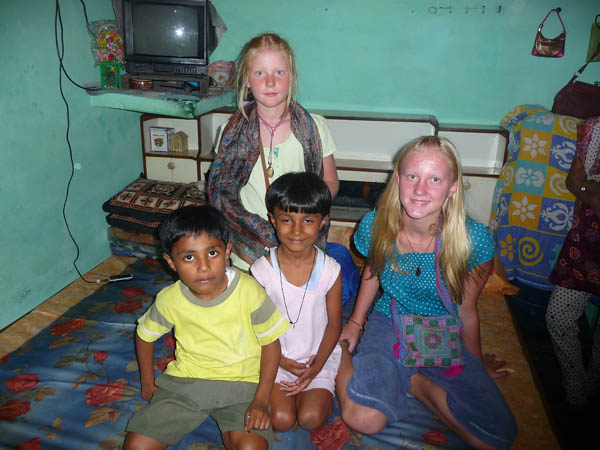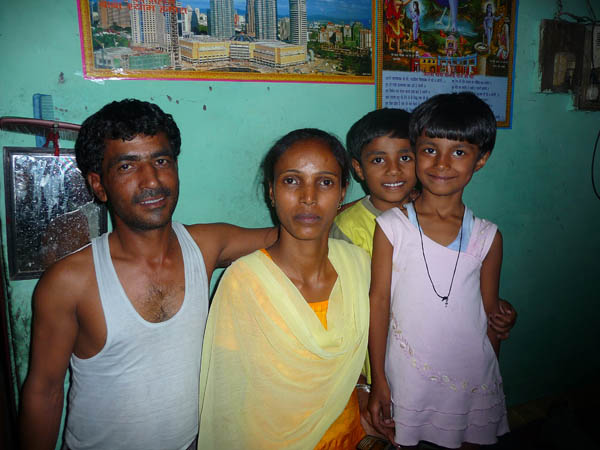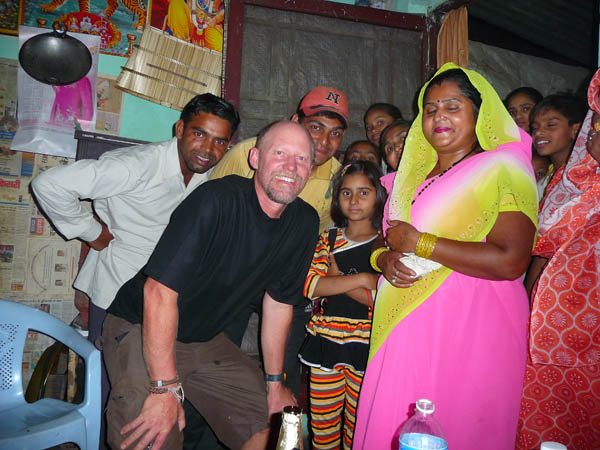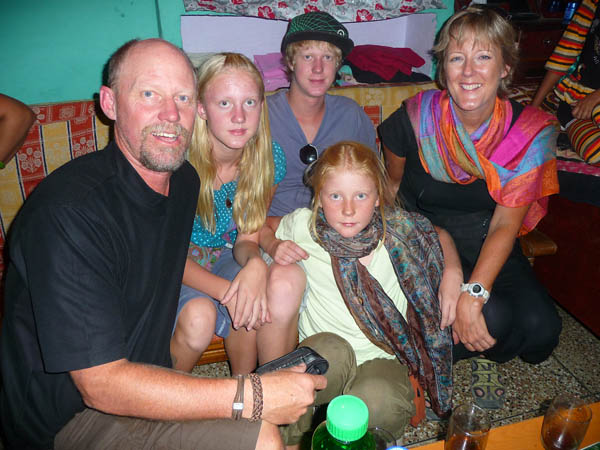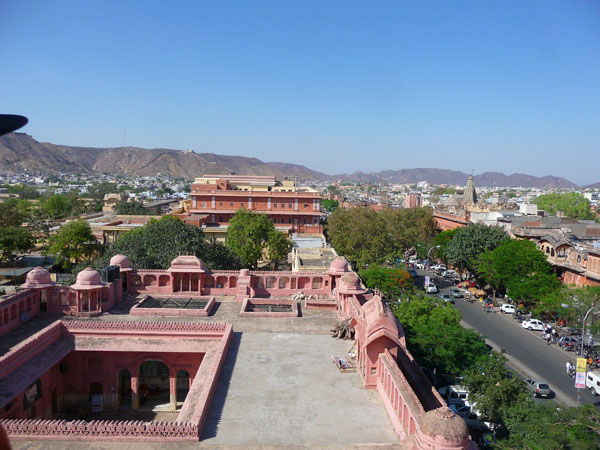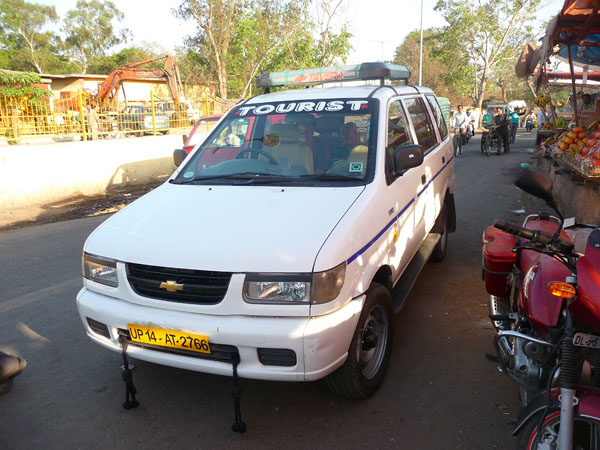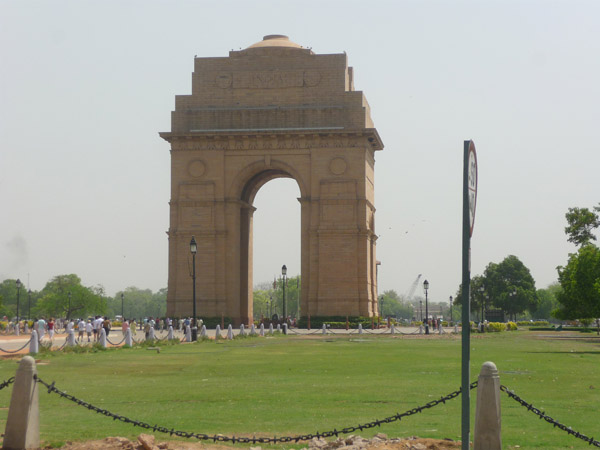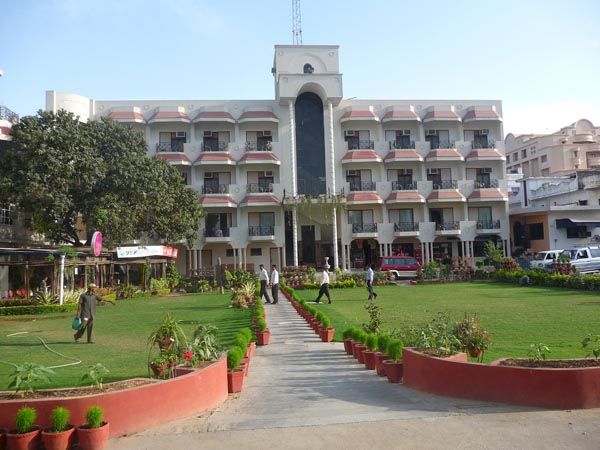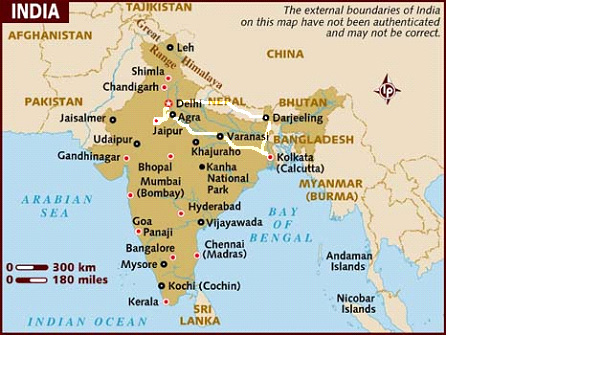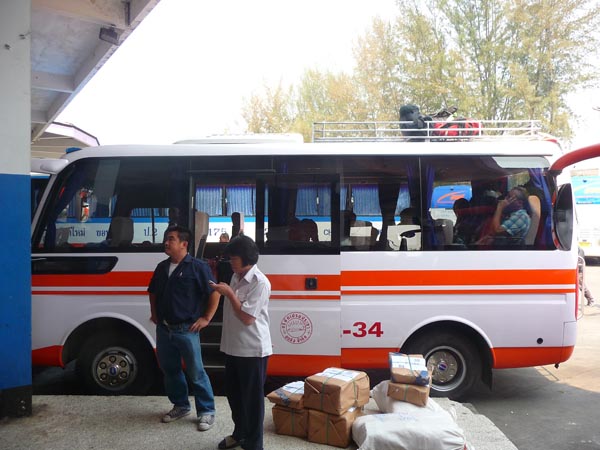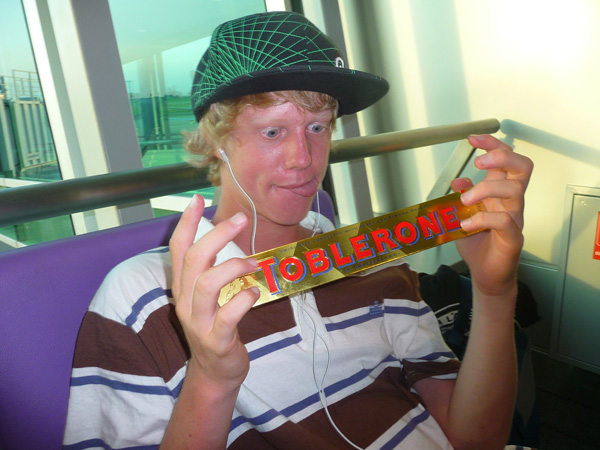April 12-18: Darjeeling
Wednesday, April 29th, 2009Above Picture – the look at the Himalayan Mtns from the planeÂ
Darjeeling:  Another early morning rise and departure, after a late night at our driver’s home in Delhi. We wanted to end our trip to India with a visit to a town overlooking a Himalayan Mountain range. Tim grew up in the foothills of the Himalayans at about 6000 feet, and wanted the kids to see its beauty, plus to get away from the heat. We thought of going to Dharamsala, where the Dalai Lamai resides, but after some research, we decided to go back to the state of West Bengal, and its premier hill town, Darjeeling (the same name as on the tea label), then fly out of India through Kolkata (not a pleasant thought – but the cheapest). Darjeeling also seemed closer to the mountains than Dharamsala, and we hoped to be able to get a better view.
The main attraction of Darjeeling is the cool air, the tea plantations, the colonial aspect of the town, and the mountain range. You can see the 1st, 3rd, 4th, and 5th highest mountains in the world (Everest, Kanchenjunga, Lhotse, and Makalu). The people in Darjeeling have mostly emigrated from Nepal, which is right next door.
The road up to Darjeeling follows a narrow switchback paved road with spectacular views of the valley. The road condition was like off-roading for 3 hours but you are on a “paved†road. There was actually more rock than pavement. It amazes me how bad the infrastructure of Indian roads still are from 30 years ago.Â
The Johnson brothers will understand this description of the town, having grown up in a similar town in Pakistan. The town has a main pedestrian boulevard (The Mall), like in Murree, but is situated on the top of a steep ridge, and there really are no trees left or nice hiking locations around the town, unlike in Murree. The whole hillside is buildings. It is packed with tourist hotels. It is also truly a tourist town, mostly Indian tourists getting away from the heat of the plains.  However, it still had that hill town Murree “feel†that I wanted the kids to get. The plan for the first two days was to let the kids sleep in and rest after the sightseeing that we had been doing. A couple of the attractions were the Himalayan Mountain Institute developed by Tensing Norgay (he and Hillary were the 1st to climb Everest), the Himalayan Zoo, the Tibet Refugee Center, the tea plantations, the churches and schools developed by the British, a small gauge “toy†steam train (at one time considered the highest train rail in the world), and some trekking into the mountains.
Our biggest disappointment was that in the days that we were there, the clouds and fog never lifted. We never got to see the Himalayan mountain range and the 3rd highest mountain in the world that sits right at the back door of Darjeeling. We decided to connect with a trekking company and take a two day/one night trek into the mountains to get a little closer in the hopes that a different valley would have a weather pattern that would allow us to see the mountains. (See separate blog on the trek)
The condition of the road. It was actually worse than this. The people in this specific area are trying to get it recognized as a state. In this manner, they will get more state funding for infrastructure. The government has balked at this probably due to the fact that years ago there was unrest due to the people wanting to get their own country called Ghurkaland.
How do you like this view? Two cars can barely pass each other.Â
The building up of the hillside to accomodate a road.
The British built this “toy” small gauge train that runs from the valley floor to the town.Â
This is the view that we were meant to see.
This is what we got for the 5 days we were there. A little discouraging.
Darjeeling Tea – I think back when the British were here, they importated some Chinese tea plants. But do to the soil and climate, the tea plant changed and evolved into its own distinct taste – from Darjeeling.
The “mall” like Muree
There was a movement to break away from India, because it really is more like Nepal than like India in culture and people. It was to be called Ghorkaland
Being a steep hillside, men and women cart huge loads up and down for the market and sale.
The night bazaar – the lanterns are all from bottled gas
These stalls are set up and broken down every morning and evening. The women or men putting the “goods” away in tin trunks or huge gunnys sacks. Then they cart them up and down the hill to their home.
The people being more Nepali, are more connected to Buddhism, but Hinduism still exists here. Nepal Buddhism is different than what we say in Thailand or Malaysia. Here there are more “prayer” flags and spinning wheels (next picture).
This was a strange statement next to the Buddhist shrine/temple.  I didn’t think they prayed or honored such inanimate objects.
Himalayan Mountain Institute: Tenzing Norgay made Darjeeling his home. He founded this climbing Institute a year after he scaled Everest. The Institute provides mountaineering training courses and has taught some of India’s leading mountaineers. I (Tim) have always enjoyed looking at and reading about mountaineering expeditions. Early in life, I always envisioned the idea of being the physiologist on an expedition that would monitor the climbers’ health while hanging out at base camp. Anyways, it was neat to see all the old pictures and gear of early expeditions to Everest and the actual gear that Tenzing used on his famous Everest climb.  They also showed climbing equipment from earlier expeditions (1940’s). To think that was the type of shoe and backpack they used is incredible considering all the high tech equipment that is used today.
These are THE  actual flags that were used in the HIllary/Tenzings climb of Everest and also the American, Indian, and two other countries 1st ascents of Everest
Tibetan Refugee Self-Help Center: This center was established in 1959 and comprises a home for the aged, school, orphanage, clinic, and craft workshops that produce woodcarvings, carpets, leather and woolen items for sale.  There is also an exhibition about the history of the Chinese occupation of Tibet and its struggle to gain its nation back.Â
Old women weaving – this picture is primarily for Natalie’s mother since she does this kind of weaving. She actually designed and produced her own loom.
India has been kind to the Tibetan cause. The Dalai Lama lives in Dharmsala in northwest India.
Quotes form the Dalai Lama
The next Dalai Lama is chosen by the present Dalai Lama himself. They call him the Panchen Lama. Well, as you can see from this picture, he has been missing for close to 15 years now. The belief is the Chinese have abducted him and hidden him away.
Himalayan Zoological Park: This park/zoo was established to study, conserve, and preserve Himalayan fauna and to exhibit Himalayan wildlife. The main attractions are the Himalayan Red Panda, Black Bears, Snow Leopards, Tibetan wolf, and Siberian tigers. Again, Annika was in heaven, looking at animals.


